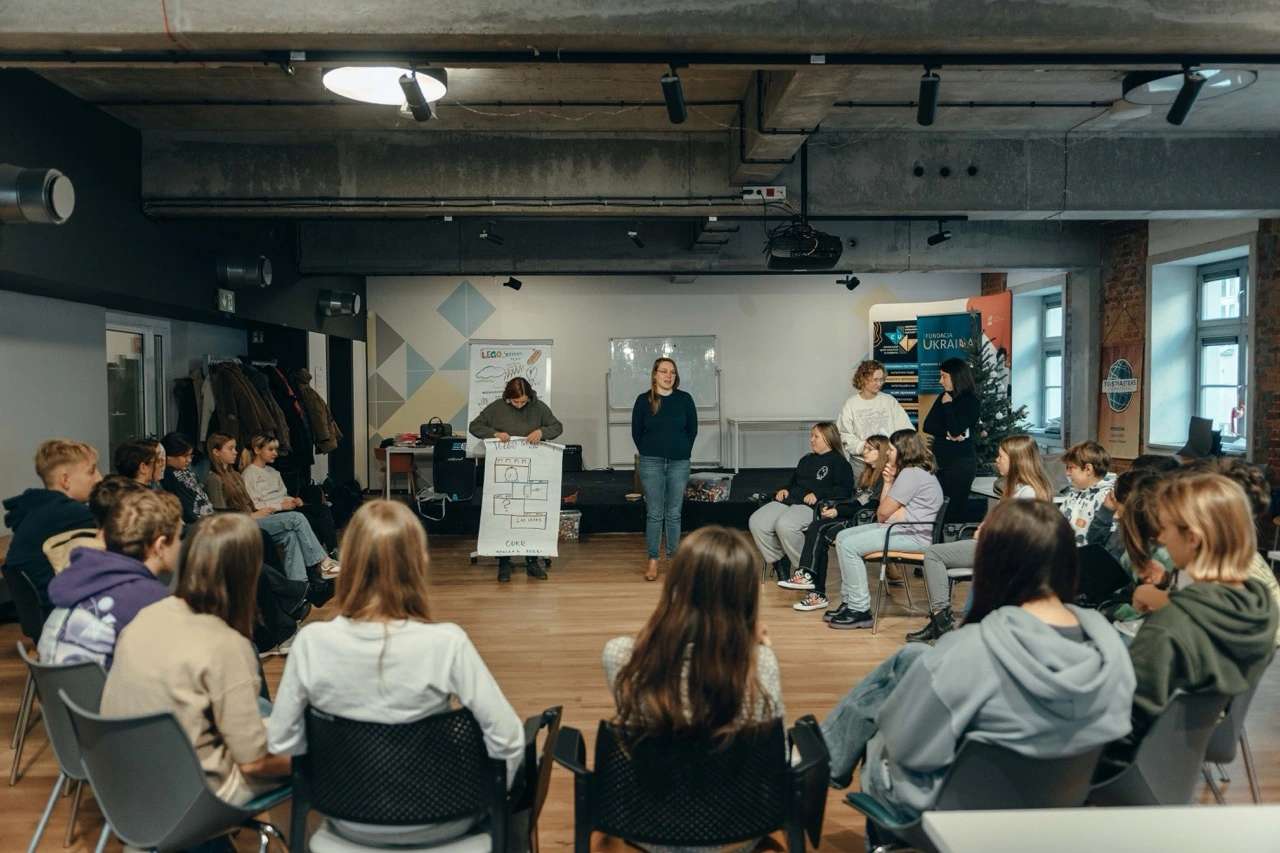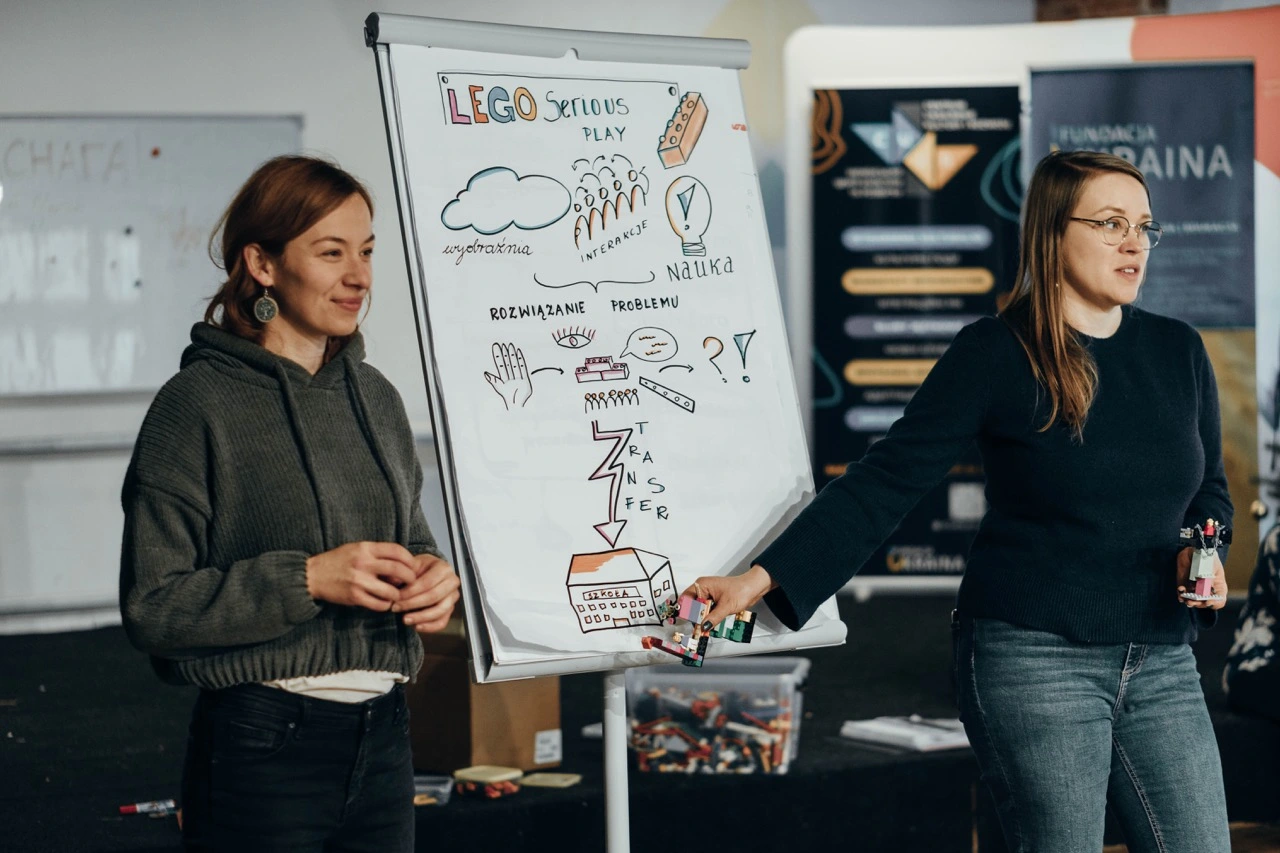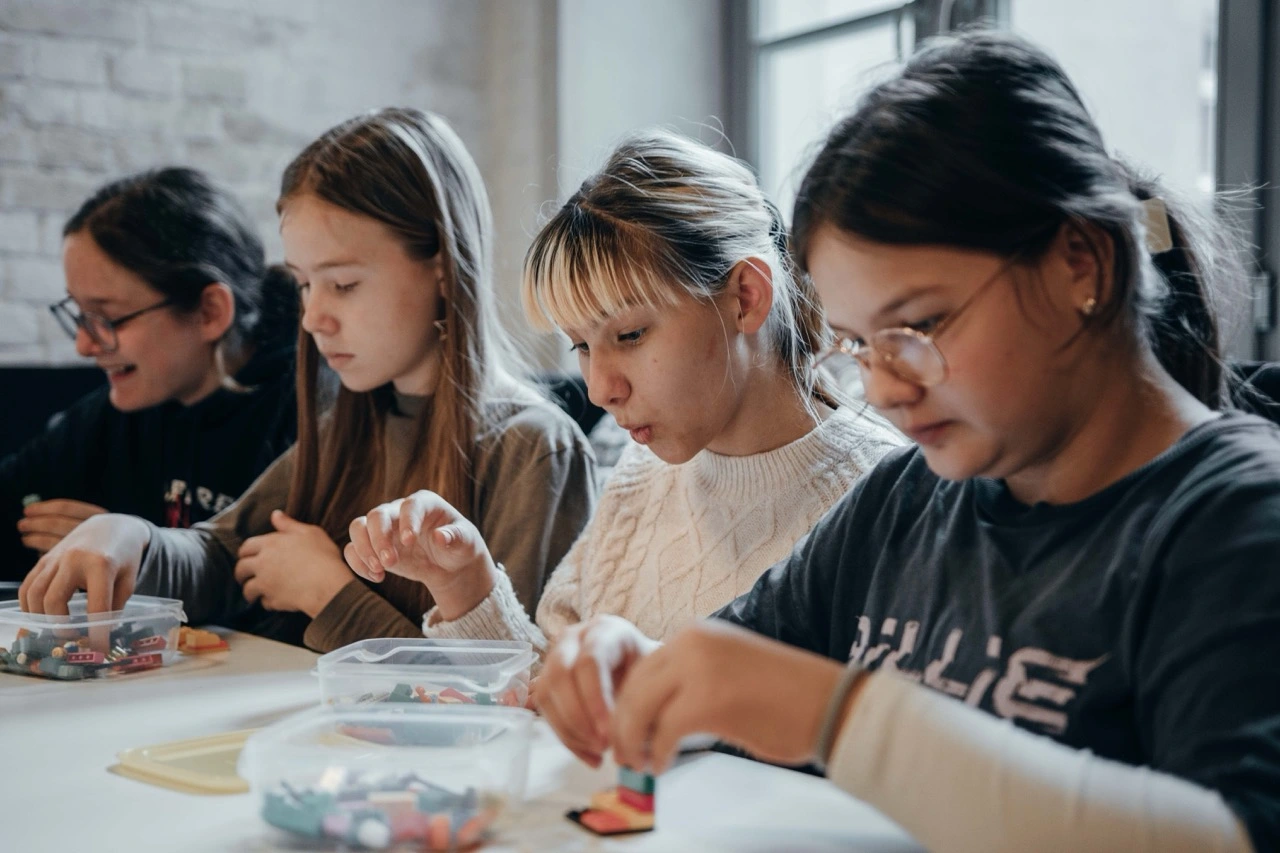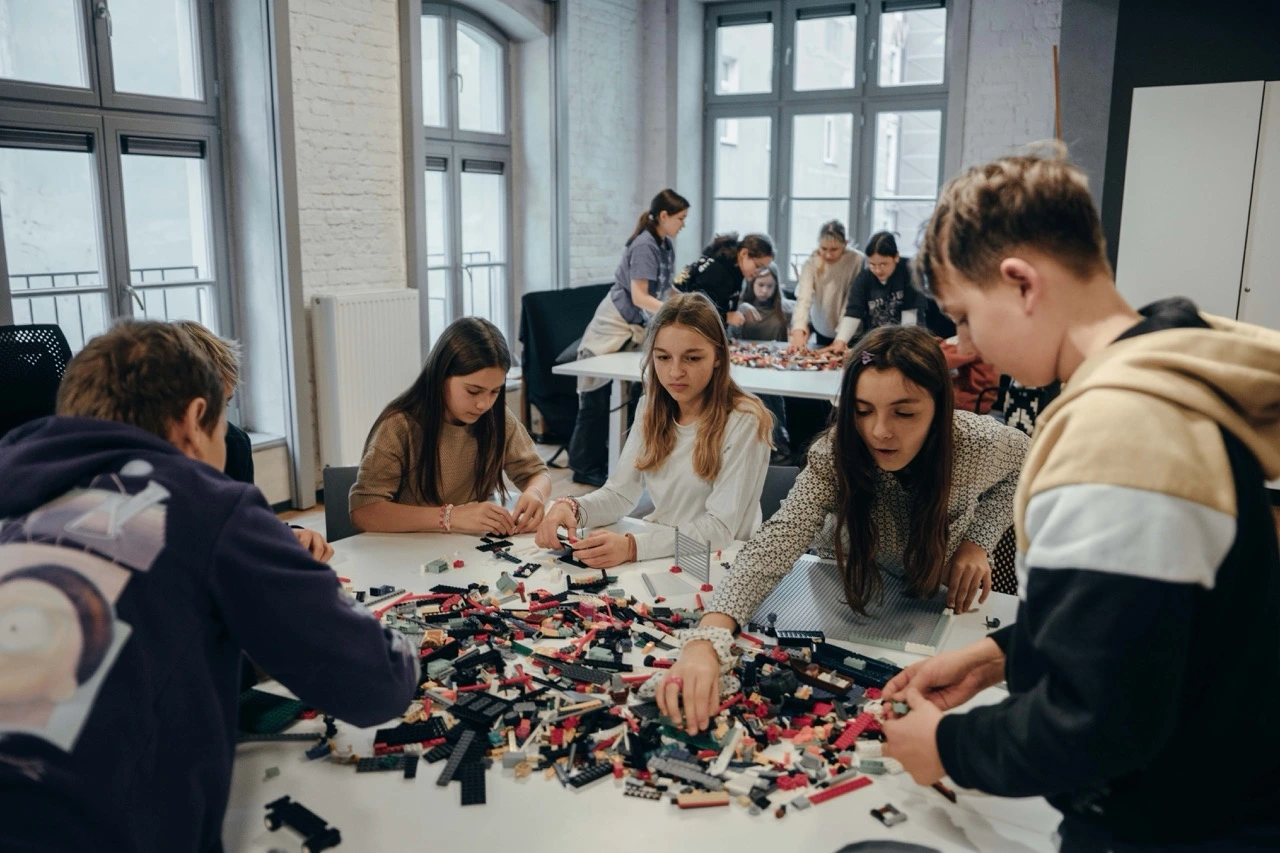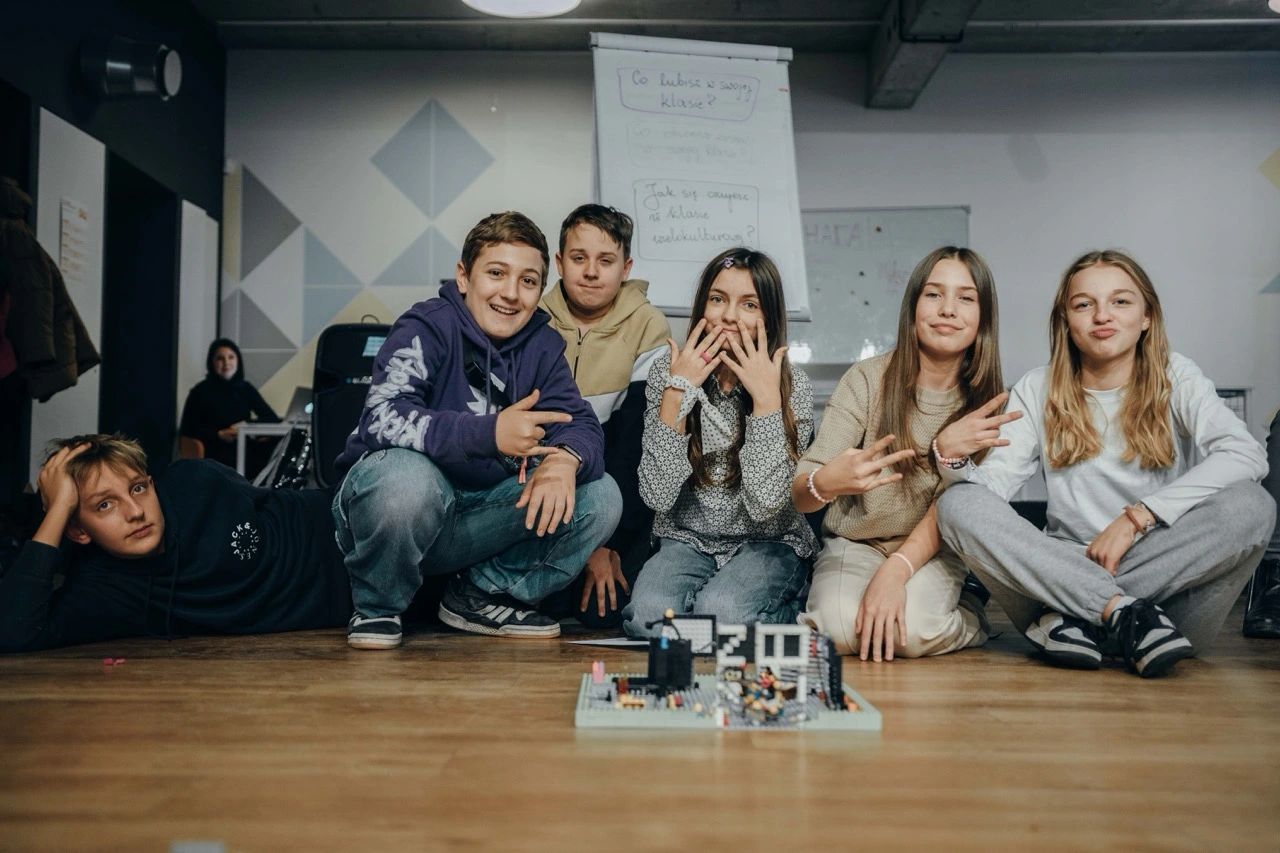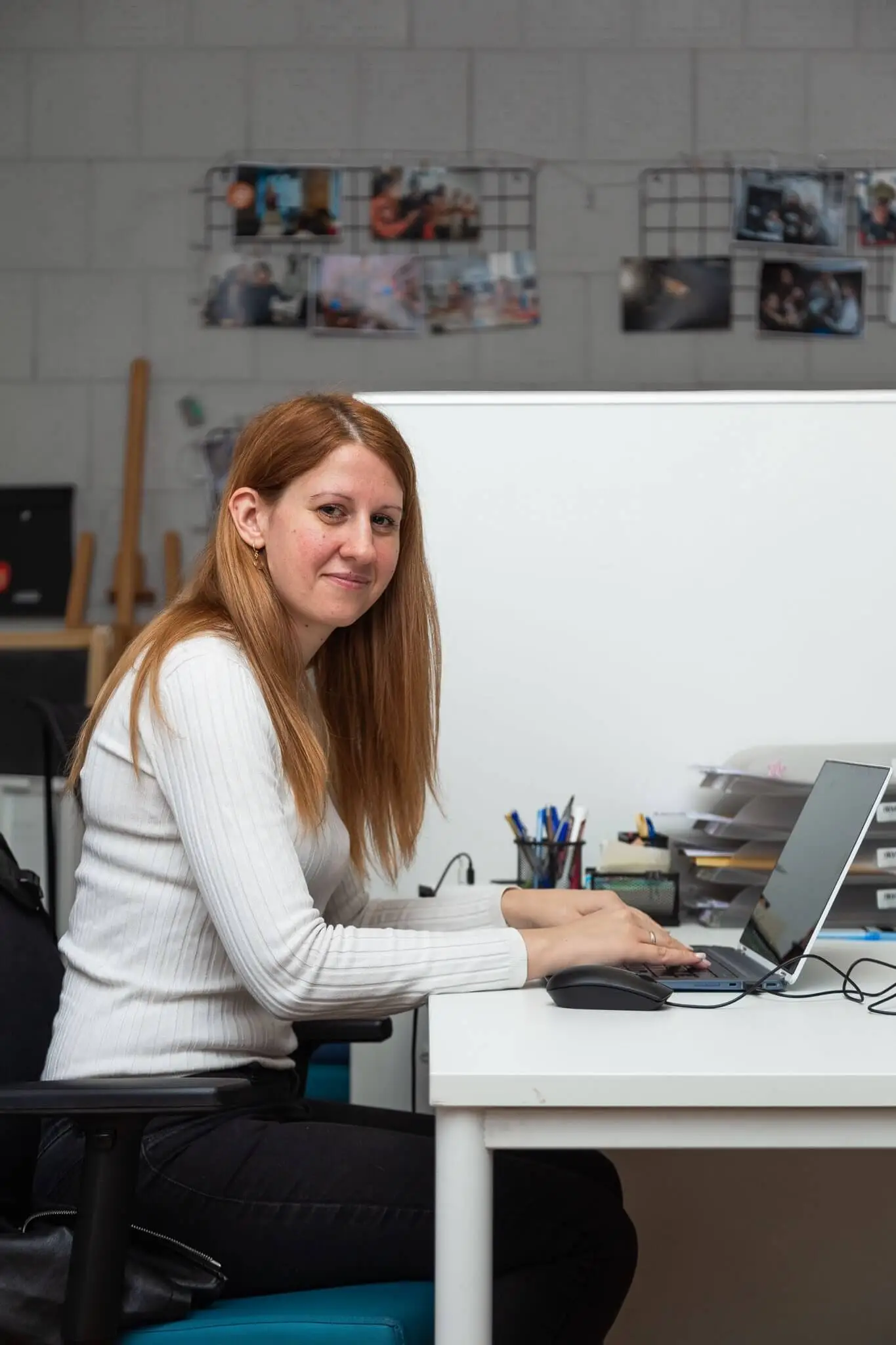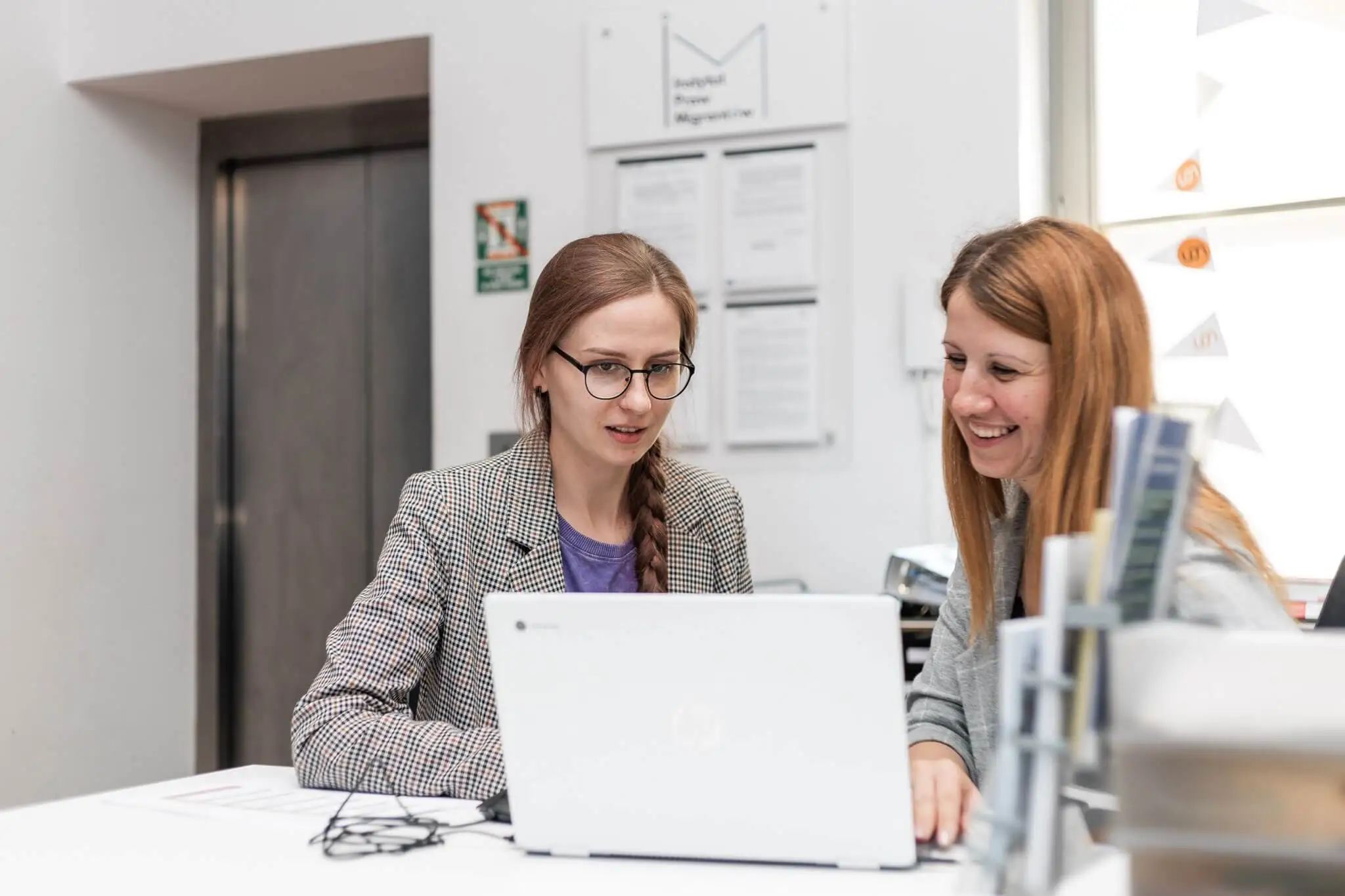Project Goal:
The aim of the project is to provide comprehensive assistance to Ukrainian children and youth who have arrived in Poland due to the full-scale war in Ukraine, especially in terms of adaptation and integration. We particularly want to address the challenges related to learning in the new educational system, language, and culture. Through various forms of support, such as Polish language learning, access to information, and educational assistance, we strive to help refugee children overcome barriers and thrive in their new social environment. Through the planned project activities, we aim to ensure access to high-quality education for Ukrainian youth.
Key project activities:
- Polish language learning
As part of this line of activities, we plan to provide children and youth with access to language courses adapted to their needs and age. The project includes conducting 22 language courses for children and youth in two age groups (11-13 years and 14-16 years), with 12-15 participants in each course.
- Supporting children by intercultural assistants
The project’s activities consist in supporting refugee children with the help of intercultural assistants working in schools of Wrocław and the Lower Silesia region. The aim of this project line is to provide support for refugee children and their parents, as well as the entire school environment. We plan to employ 41 assistants, 34 of whom will work part-time and 7 full-time in the region. Support will be provided in 25 schools, covering a total of 750 refugee children, helping in the areas of integration and education.
- Providing educational support in schools
The organization of educational activities involving intercultural assistants to support the integration of children in schools is planned as part of the project. The project includes conducting 8 cultural events and 6 sports events for children, establishing 5 children’s clubs in schools, 4 week sessions, and regular developmental activities involving over 300 children in total.
- Teacher training
As part of the project, it’s planned to conduct 4 training sessions for a total of 80 teachers from areas with the greatest support needs. Educational activities and training for teachers will contribute to raising social awareness about the challenges and needs of refugee children and ways to support them.
- Integrative workshops for culturally diverse classes
We plan to conduct 20 cycles of integration and anti-discrimination workshops for at least 400 children in total, learning in culturally diverse classes. The workshops will be conducted using the LEGO® SERIOUS PLAY® method. The aim of the workshops is to support the integration of refugee children in a new environment, reduce cultural barriers and build a more diverse and integrated society.
The workshops will discuss the challenges children face, as well as the necessary skills needed to solve these problems. Action plans created by students will support interaction between peers and integration of the entire class.
- Parent courses
Organizing 4 training courses for approximately 80 parents of children already in the educational system. Through these courses, we aim to help parents better understand the Polish education system, enabling them to provide more effective support for their children in the educational journey.
- Consultations and mobile support
Providing information support for parents and employees of education-related institutions in the field of education and matters related to children and youth. As part of the project, we plan to conduct 100 stationary consultations per month, mobile support for 20 individuals and 80 mobile consultations monthly. Comprehensive informational support will contribute to reducing cultural barriers and promoting mutual understanding among different social groups.
- Educational advocacy and consulting
According to the Polish Education Act, each migrant child can receive the support of an intercultural assistant. Despite this, most municipalities refuse to employ assistants. This is not the only problem. There are no clear work standards for assistants, no specific remuneration, and even no clear professional duties. Our experience shows that even school principals do not know what the work of intercultural assistants look like.
To address this issue, we aim to improve the employment conditions of intercultural assistants and increase awareness of the needs of refugee children among educational institutions. Planned advocacy activities include evaluation of the employment model for intercultural assistants in Wrocław, dissemination of promotional and information materials regarding the work of assistants and training for education superintendents.
The actions taken as part of the project will contribute to creating a more open, integrated, and understandable society, where every child will have equal opportunities for development and educational success.
The “Refugee Children Support Ecosystem” project is funded by Save the Children International.


